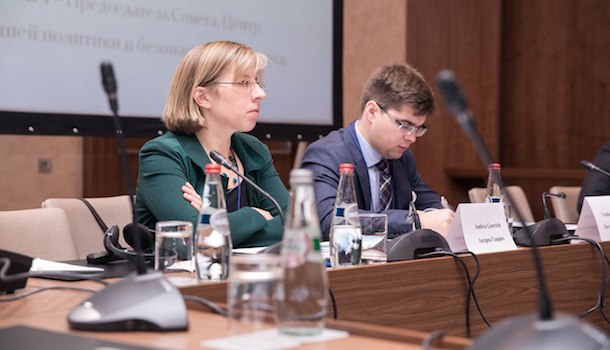These and other questions will be addressed during the expert conference organized jointly by the Discussion and Analytical Society Liberal Club, Belarus, and Justus Liebig University (JLU) Giessen, Germany.
The present event is the first of the two conferences held in the framework of the joint project by the Liberal Club and JLU Giessen. It builds on the inaugural conference of the Minsk Dialogue Track-II initiative, held on 26-28 March 2015. It gathered leading experts from the European Union, Russia and eastern European countries to discuss viable ideas on how to minimize tensions in the shared neighbourhood between the EU and Russia and to produce concrete policy recommendations for stakeholders across the emerging dividing lines.
Based on the conference deliberations, a non-paper was published. It recommends, inter alia, that “the issue of protracted conflicts in the shared neighbourhood (including lessons from the older conflicts in the post-Soviet space for the Donbas crisis) should be a priority for future Minsk Dialogue meetings”. Most recent escalations in a number of these conflicts have further raised the issue’s topicality.
Track-II Diplomacy Format
The Minsk Dialogue aims to create a permanent Track-II (non-governmental) expert platform for holding regular conferences and promoting up-to-date policy advice. The conferences are held under the Chatham House Rule with a view to facilitating open exchange. In order to establish ties with Track-I diplomacy (inter-governmental), diplomats are invited as observers.
Participants
Leading experts from eastern European countries, Germany and other EU member states, Russia, the USA and international organisations.
Conference Objectives
To facilitate inclusive and sustainable expert dialogue at the Track-II level and beyond existing regional divides.
To look for innovative ideas on policy approaches and confidence-building measures for a comprehensive settlement of the existing protracted conflicts on the post-Soviet territory and for preventing new conflicts.
Venue
Minsk serves as venue for this event due to its newly established status as a neutral ground for negotiations on resolving the Ukraine crisis. It has the best potential to gather experts from all countries in the region and is also uniquely placed to host discussions about post-Soviet territorial conflicts given its role in supporting the negotiation format for the settlement of the Nagorno-Karabakh conflict (the “Minsk Group”).
Expected Outcomes
- A comprehensive review of the latest developments related to the post-Soviet protracted conflicts, including bottlenecks, needs and approaches of international actors.
- An informal network of influential region experts from eastern European countries, Germany and other EU member states, Russia, the USA and international organisations providing policy advice and feeding fresh ideas for future Track-I processes.
- A policy non-paper on approaches and confidence-building measures supporting a comprehensive settlement of the existing protracted conflicts on the post-Soviet territory and preventing the outbreak of new conflicts.
Programme
Wednesday, 12 November
|
9.00-9.30 |
Registration |
|
9.30-10.00 |
Welcoming remarks (Open to the press) Peter Dettmar – Ambassador Extraordinary and Plenipotentiary, Embassy of the Federal Republic of Germany in the Republic of Belarus Scott Rauland – Charge d’Affaires, Embassy of the United States in the Republic of Belarus Yauheni Preiherman – Policy Director, Centre for Analytical Initiatives, Discussion and Analytical Society Liberal Club, Belarus Andrea Gawrich – Professor of International Integration, Justus Liebig University (JLU) Giessen; Associate Fellow, German Council on Foreign Relations, Germany |
|
10.00-12.00 |
Session 1. The role of external actors in escalating/de-escalating protracted conflicts on the post-Soviet territory (Open to the press) |
|
|
Alexander Iskandaryan – Director, Caucasus Institute, Armenia Glen Howard – President, Jamestown Foundation, USA Daria Khaspekova – Web Editor-in-Chief, Russian International Affairs Council, Russia Igor Smeshko – Advisor to the President, Ukraine Giorgi Kanashvili – Executive Director, Caucasian House, Georgia Chair Viktar Shadursky – Dean, Department of International Relations, Belarusian State University, Belarus |
|
12.00 |
Coffee break |
|
12.30-14.30 |
Session 2. Internal political dynamics in conflict zones: post-Soviet territories of contested sovereignty David Shahnazaryan – Senior Analyst, Regional Studies Center, Armenia Mamuka Areshidze – Director, Caucasian Centre for Strategic Studies, Georgia Vladimir Fesenko – Chairman of Board, PENTA Centre, Ukraine Sergey Markedonov – Associate Professor, Russian State University for the Humanities; Expert, Russian International Affairs Council, Russia Vadim Gigin – Editor-in-Chief, Belaruskaya Dumka, Belarus Chair Dzianis Melyantsou – Senior Analyst, Belarusian Institute for Strategic Studies, Lithuania-Belarus |
|
14.30 |
Lunch |
| 15.30-17.30 |
Session 3. The economic dimensions of the post-Soviet protracted conflicts Timur Onica – Programme Officer, European Endowment for Democracy, Belgium Farid Guliyev – Independent researcher and policy expert, Azerbaijan Lyndon Allin – Political Officer, OSCE Mission to Moldova, USA Kosta Dzugaev – Associate Professor, South Ossetian State University; Senior Fellow, South Ossetian Scientific and Research Institute, South Ossetia Vyacheslav Sutyrin – Fellow, Department of Political Sciences, Moscow State University, Russia Chair Andrei Rusakovich – Chairman of the Board, Foreign Policy and Security Research Centre, Belarus |
|
19.00 |
Dinner |
Friday, 13 November
|
9.30-11.30 |
Session 4. Examining the existing models of political negotiations in post-Soviet territorial conflicts: do they lead to solutions or intractable conflicts? Paata Gaprindashvili – Vice-Director, Georgia’s Reforms Associates (GRASS), Georgia Zaur Shiriyev – Academy Fellow, Chatham House, UK; Senior Research Fellow, Azerbaijan Diplomatic Academy, Azerbaijan Mykola Sunhurovskyi – Director, Military Programmes, Razumkov Centre, Ukraine Aleksandr Gushchin – Associate Professor, Russian State University for the Humanities; Expert, Russian International Affairs Council, Russia Octavian Milewski – Researcher, Polish Academy of Sciences, Poland-Moldova Chair Andrei Skryba – Researcher, Centre for Comprehensive European and International Studies, Higher School of Economics, Russia |
|
11.30-12.00 |
Coffee break
|
|
12.00-13.30 |
Roundtable discussion (concluding). Do’s and Don’ts for resolving post-Soviet protracted conflicts: lessons learned and recommendations for the future ChairYauheni Preiherman – Policy Director, Centre for Analytical Initiatives, Discussion and Analytical Society Liberal Club, Belarus Conference adjourns |


